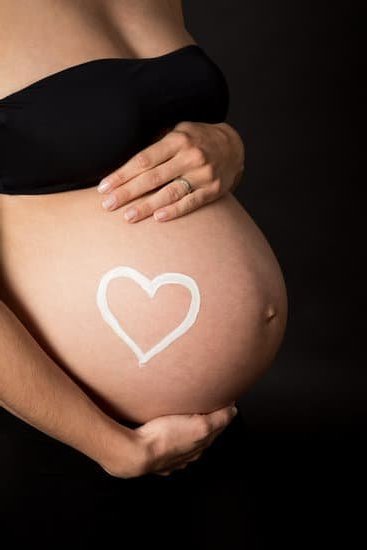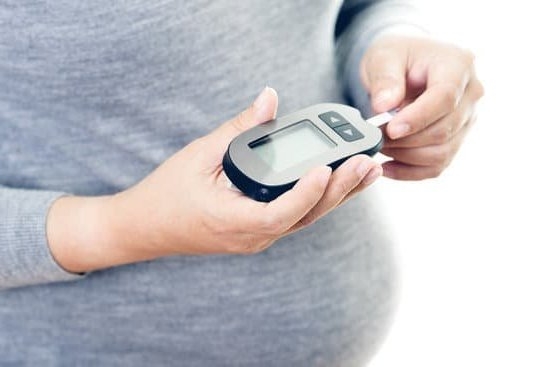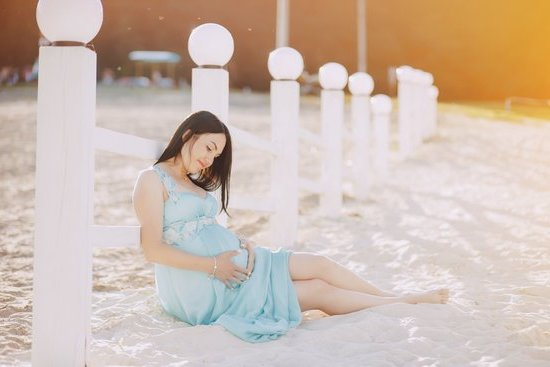When it comes to the early signs of pregnancy, many women may wonder just how soon these symptoms can start to appear. From fatigue and nausea to breast tenderness and mood swings, understanding the concept of early pregnancy symptoms is crucial for those trying to conceive or those who suspect they may be pregnant.
For some women, pregnancy symptoms can start as early as one week after conception, while others may not experience any noticeable signs until a few weeks into their pregnancy. These symptoms vary from person to person and can be influenced by factors such as hormone levels, stress, and overall health.
It’s important to differentiate between early signs of pregnancy and typical premenstrual syndrome (PMS) symptoms. While both may include fatigue and mood swings, pregnancy symptoms often involve additional indicators such as implantation bleeding, heightened sense of smell, and frequent urination. Understanding the differences can help determine if you should seek medical advice or take a pregnancy test to confirm your suspicions.
What Are the Typical Early Signs of Pregnancy to Look Out For?
Pregnancy symptoms can vary from woman to woman, but there are some common signs to look out for. One of the earliest and most well-known symptoms is a missed period. However, other early signs may include fatigue, nausea or morning sickness, breast tenderness, frequent urination, and heightened sense of smell. Some women may also experience implantation bleeding, which occurs when the fertilized egg attaches itself to the uterine lining.
Other less common early pregnancy symptoms include mood swings, food aversions or cravings, headaches, constipation, and mild cramping or bloating. It’s important to note that not all women will experience all of these symptoms, and some may have a combination of only a few. Understanding your own body and being aware of these possible signs can help you recognize if you might be pregnant.
According to medical experts, early pregnancy symptoms can start as soon as one week after conception. This means that some women may begin experiencing symptoms even before they miss their period. However, it’s essential to remember that every woman is different, and the timing and severity of symptoms can vary widely. If you suspect you may be pregnant based on these early signs, it’s best to take a home pregnancy test or visit your healthcare provider for confirmation.
| Early Pregnancy Symptoms | Timing |
|---|---|
| Missed Period | As early as one week after conception |
| Nausea/Morning Sickness | Within the first few weeks after conception |
| Breast Tenderness | Can start within one to two weeks after conception |
How Soon After Conception Can You Experience Pregnancy Symptoms?
Understanding the Timeline
After conception, it may take some time for the fertilized egg to implant itself in the uterus. This process, known as implantation, usually occurs about 6-12 days after ovulation. It is during this time that hormonal changes start happening in the body, leading to the first signs of pregnancy. These early symptoms can vary from woman to woman, but they typically start showing up around one to two weeks after conception.
Common Early Pregnancy Symptoms
Some of the most common early signs of pregnancy include missed period, fatigue, nausea (morning sickness), frequent urination, breast tenderness, and mood swings. These symptoms are often attributed to the rapidly increasing levels of hormones such as human chorionic gonadotropin (hCG) and progesterone in the body. While some women experience these signs as early as a week after conception, others may not notice any until a few weeks later.
Factors Influencing Symptom Onset
Several factors can influence when pregnancy symptoms start appearing. These include individual differences in hormone levels, overall health and lifestyle habits, as well as the sensitivity of a woman’s body to hormonal changes. Stress levels and pre-existing medical conditions can also play a role in how early or late someone experiences pregnancy symptoms. It is essential to remember that every pregnancy is unique, so timing and intensity of symptoms can vary widely among different women.
Early Signs of Pregnancy vs PMS Symptoms
One of the key questions many women have is how early can you experience pregnancy symptoms. Typically, early signs of pregnancy can start as soon as a week after conception. Some women may notice symptoms even earlier, while others may not experience any noticeable changes for several weeks. It’s important to remember that every woman’s body is different, so the timing of symptoms can vary.
When trying to distinguish between early signs of pregnancy and symptoms of premenstrual syndrome (PMS), there are some key differences to look out for. For example, while both PMS and early pregnancy can cause breast tenderness, the severity and duration may differ. Pregnancy-related breast tenderness may feel more intense and last longer than what is typically experienced before a menstrual period.
Another common symptom that overlaps between early pregnancy and PMS is fatigue. However, in the case of pregnancy, fatigue can be more overwhelming and persistent. Women who are pregnant often report feeling extremely tired even after getting an adequate amount of rest. This contrasts with the fatigue associated with PMS, which tends to improve once menstruation begins.
| Early Pregnancy Symptoms | PMS Symptoms |
|---|---|
| Breast tenderness that lasts longer and feels more intense | Shorter duration of breast tenderness |
| Overwhelming fatigue that persists despite rest | Fatigue that improves once menstruation starts |
Factors That Can Affect When Pregnancy Symptoms Start to Show
Pregnancy is a unique journey for every woman, and the timing of when pregnancy symptoms start to show can vary significantly from person to person. Several factors can influence when these early signs of pregnancy become noticeable. Understanding these factors can help you manage your expectations and prepare for what may lie ahead.
Body Chemistry and Hormonal Changes
One of the most significant factors that can affect when pregnancy symptoms start to show is an individual’s body chemistry and hormonal changes. Every woman’s body reacts differently to the surge in hormones that occurs during pregnancy. Some women may experience symptoms like nausea, fatigue, or breast tenderness as early as a week after conception, while others may not notice any changes until several weeks into their pregnancy.
Overall Health and Lifestyle
A woman’s overall health and lifestyle habits can also play a role in when pregnancy symptoms become apparent. Women who are generally healthier and have lower levels of stress may experience symptoms earlier than those who lead more sedentary lifestyles or have higher stress levels. Factors like diet, exercise, and sleep patterns can all impact how early symptoms present themselves.
Previous Pregnancy Experiences
Women who have been pregnant before may notice symptoms earlier in subsequent pregnancies compared to first-time mothers. This phenomenon is often referred to as “pregnancy sensitization,” where a woman’s body becomes more attuned to the hormonal changes associated with pregnancy after going through it once before. This increased awareness of one’s body can lead to earlier recognition of pregnancy symptoms in subsequent pregnancies.
By considering these various factors that can influence when pregnancy symptoms start to show, women can better understand their own experiences and seek appropriate medical advice if needed. It is essential to listen to your body, track any changes you notice, and consult with a healthcare provider if you suspect you may be pregnant but are unsure about your symptoms.
Remember that every pregnancy journey is unique, so being informed and proactive about your health is key in this exciting time of life.
Real-Life Experiences
During the initial stages of pregnancy, every woman’s experience can be unique, and some may start noticing symptoms sooner than others. The question of how early can you experience pregnancy symptoms is a common one among women who suspect they may be pregnant. Some women report feeling symptoms as early as a week after conception, while others may not notice any changes until several weeks into their pregnancy.
For many women, one of the earliest signs of pregnancy is a missed period. However, other common early pregnancy symptoms include nausea, fatigue, breast tenderness, increased sensitivity to smell, frequent urination, and mood swings. Some women also experience implantation bleeding or cramping shortly after conception.
One woman shared her experience of feeling unusually tired and nauseous just a few days after ovulation, prompting her to take a pregnancy test that came out positive. Another woman mentioned that she started craving certain foods and experiencing heightened emotions before even realizing she had missed her period. These anecdotal accounts highlight the varied ways in which early pregnancy symptoms can manifest in different individuals.
When to Take a Pregnancy Test After Experiencing Early Symptoms
If you suspect that you might be pregnant, one of the crucial steps to take is to confirm your suspicions through a pregnancy test. But how soon should you take the test after experiencing early pregnancy symptoms? Here is a general guide on when it is recommended to take a pregnancy test:
- Wait for at least several days after you have missed your period: One common recommendation is to wait until you have missed your period before taking a pregnancy test. This is because pregnancy tests work by detecting the hormone hCG, which is produced in higher levels as the pregnancy progresses.
- Use an early detection pregnancy test: Some pregnancy tests are specifically designed to detect lower levels of hCG earlier than others. These tests can typically be used up to 6 days before your missed period, but keep in mind that the accuracy may vary.
- Consider testing in the morning: Your first-morning urine tends to have a higher concentration of hCG, so taking the test in the morning may increase the likelihood of an accurate result.
It’s important to note that every woman’s body is different, and there can be variations in when hCG levels rise enough to be detected by a pregnancy test. If you receive a negative result but still suspect you might be pregnant, consider testing again after a few days or consult with your healthcare provider for further guidance.
- Remember that home pregnancy tests are not always foolproof: False negatives can occur due to testing too early or improper use of the test. If you continue experiencing symptoms despite a negative result, it’s advisable to seek medical advice for confirmation.
- If your initial test result is positive, schedule an appointment with your healthcare provider: Confirming your pregnancy through professional medical assessment can provide essential information and guidance on next steps for prenatal care.
By following these guidelines on when to take a pregnancy test after experiencing early symptoms, you can better navigate this important stage of potentially becoming pregnant and seek appropriate care and support as needed.
Tips for Managing Pregnancy Symptoms in the Early Stages
During the early stages of pregnancy, many women may experience a range of symptoms that can vary in severity. These symptoms may include nausea, fatigue, breast tenderness, and mood swings. Managing these symptoms effectively can help make the early weeks of pregnancy more bearable. Here are some tips for managing pregnancy symptoms in the early stages:
- Stay hydrated: Drinking plenty of water can help alleviate nausea and prevent dehydration, which is essential during pregnancy.
- Get plenty of rest: Pregnancy can be exhausting, especially in the first trimester. Make sure to prioritize rest and listen to your body when it needs a break.
- Eat small, frequent meals: Eating smaller meals throughout the day can help combat nausea and keep blood sugar levels stable. Opt for bland foods like crackers or toast if you’re experiencing morning sickness.
It’s also important to communicate with your healthcare provider about any severe or concerning symptoms you may be experiencing. They can provide guidance on managing symptoms and ensure that both you and your baby are healthy throughout your pregnancy journey.
Recognizing and effectively managing early pregnancy symptoms is crucial for a healthy and happy pregnancy. By following these tips and staying in touch with your healthcare provider, you can navigate the challenges of the first trimester with confidence and peace of mind. Remember, every woman’s experience with pregnancy is unique, so don’t hesitate to reach out for support when needed.
Conclusion
Recognizing early pregnancy symptoms is crucial for expecting mothers as it allows for timely prenatal care and support. While every woman’s experience may differ, knowing the typical signs to look out for can help in understanding your body’s changes. From nausea and fatigue to breast tenderness and missed periods, being aware of these symptoms can prompt you to seek medical advice sooner rather than later.
It is essential to understand that pregnancy symptoms can vary greatly from person to person, with some experiencing them as early as a week after conception. However, it is important to note that these symptoms can also be similar to premenstrual syndrome (PMS) signs.
Knowing how to differentiate between the two can prevent unnecessary worries and anxieties. Keeping track of your menstrual cycle and noting any unusual changes in your body can aid in distinguishing between early pregnancy symptoms and PMS discomfort.
In conclusion, listening to your body and recognizing early pregnancy symptoms are vital steps in ensuring a healthy and successful pregnancy journey. Seeking medical advice when you suspect you might be pregnant is highly recommended, as healthcare professionals can provide guidance on prenatal care, lifestyle adjustments, and support throughout your pregnancy. Remember that every woman’s experience is unique, so trust your instincts and reach out for help if needed.
Frequently Asked Questions
What Symptoms Do You Have at 1 Week Pregnant?
At 1 week pregnant, most women may not even realize they are pregnant yet as this is very early in the pregnancy journey. Typically, there are no noticeable physical symptoms at this stage since implantation of the fertilized egg into the uterus lining has just occurred.
How Early Do Pregnancy Symptoms Start?
Pregnancy symptoms can start as early as a week after conception, which is when the fertilized egg implants itself into the uterus. Some women may experience early signs like fatigue, breast tenderness, nausea, or frequent urination even before a missed period. However, it varies from person to person.
How Soon Can You Know if You Are Pregnant?
You can know if you are pregnant as soon as around 8-10 days after ovulation through an early pregnancy test that detects the hormone hCG in your urine. Some tests claim to provide accurate results even earlier than that, but it’s generally recommended to wait until you have missed your period for more reliable results.

Welcome to my fertility blog. This is a space where I will be sharing my experiences as I navigate through the world of fertility treatments, as well as provide information and resources about fertility and pregnancy.





